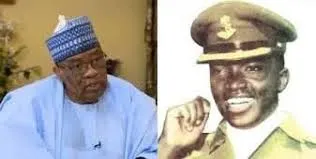
IBB’s Role in the 1966 Igbo Coup’s Downfall
The January 15, 1966, coup in Nigeria, led by Major Kaduna Nzeogwu and other military officers, has often been mischaracterized as an “Igbo coup.” However, a deeper look into the events and participants shows that it was more complex than that.
While a significant number of the coup plotters were Igbo, the coup itself had a broader nationalist intent rather than an ethnic one. The primary goal, as stated by Nzeogwu, was to end corruption and establish a more just government. There were also allegations that the coup intended to bring Chief Obafemi Awolowo (who was imprisoned at the time) to power, although this remains speculative.
It’s important to note that the coup failed, and General Aguiyi-Ironsi, another Igbo officer, assumed control, not as part of the plot but as the highest-ranking officer in the Nigerian Army at the time. However, the coup led to significant ethnic tensions, particularly because most of the top political and military figures killed were from the Northern and Western regions, fueling suspicions of Igbo favoritism.
The counter-coup in July 1966, which saw the assassination of Aguiyi-Ironsi and the rise of Yakubu Gowon, was led predominantly by Northern officers. Ibrahim Babangida (IBB) was not a key player in the counter-coup; he was still a junior officer at the time.
So while the 1966 coup had many Igbo officers involved, it was not a purely “Igbo coup” but rather a military intervention with a mix of political and ideological motives.